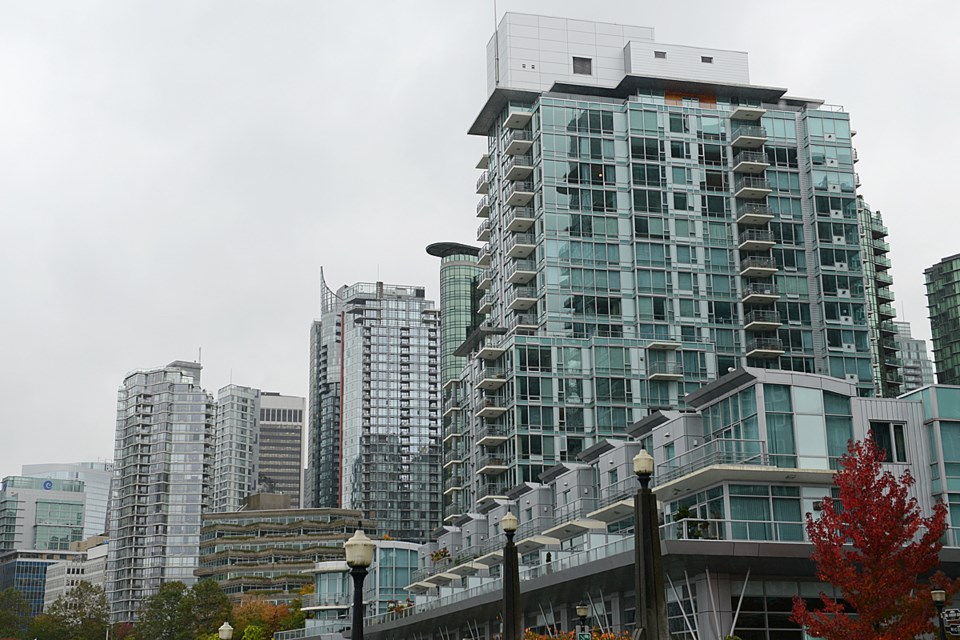Stiffer currency regulations in China could dampen Vancouver real estate sales, but some say they might also provide an excuse for China-based investors to bail out of Metro Vancouver’s slowing housing market.
According to global property service firm Jones Lang LaSalle (JLL), China’s outbound commercial real estate investment increased 53 per cent to US$33 billion in 2016 from a year earlier.
In Vancouver, the largest acquisition was the purchase of a downtown office portfolio last year by Beijing-based Anbang Insurance Group for close to $1 billion.
China-based investors have also bought land for joint venture real estate development. A recent deal includes TransLink’s 13.8-acre former bus depot on West 41st Avenue, Vancouver, where China’s Modern Green Development Co. is now the majority owner.
But on Dec. 31, the People’s Bank of China and the State Administration of Foreign Exchange (SAFE) began an aggressive intervention in the market to curb capital outflows.
In January it was ruled that all buyers of foreign exchange must sign a pledge that they won’t use their $50,000 quotas for offshore property investment.
The annual quotas have been in effect for years, but enforcement had been sporadic.
Violators will now be added to a government watch list, denied access to foreign currency for three years and subjected to money-laundering investigations, SAFE said in a statement.
The US$35 billion figure does not include overseas home purchases by China residents, who had been quite active in Metro Vancouver until the B.C. government imposed a 15 per cent tax on foreign buyers last August.
Since then, overall housing sales have plunged 47 per cent and benchmark prices are down 4 per cent, according to the Real Estate Board of Greater Vancouver.
Joe Zhou, JLL’s head of research in China, has predicted a “big drop” in overseas purchases this year amid concerns over stricter and longer review procedures by the authorities as part of efforts to ease pressure on a depreciating yuan.
“We do expect a slowdown in outbound investment made by Chinese investors because of strict capital controls, which is not likely to be loosened any time soon,” Zhou said in email to Business in Vancouver. “The impact will be felt across all the major global cities where Chinese investors have been active over the past few years.”
Vancouver might already be sharing the pain.
“I have been hearing rumours of some key China-based players in Metro Vancouver not waiving their conditions on transactions due to lack of investor funding,” said Stanley Chui, vice-president of Gammon International Real Estate Corp., which is active with foreign investors. Chui said he has seen no issues on foreign-buyer real estate deals worth less than $5 million, “because at this level the deals can be all cash.”
But others say any waning of Chinese interest in Vancouver real estate is likely a temporary reaction to a cooling market.
Immigration lawyer Richard Kurland said the 15 per cent foreign-buyer tax, declining values in Metro Vancouver residential real estate and better opportunities in other foreign markets could be having a bigger effect than China’s current controls.
“[Currency controls] may well be an excuse to dodge deals,” he said.
Dave Platter, global public relations and communications director of Juwai.com, China’s largest online portal for buyers seeking foreign real estate, said mid-level Chinese investors in particular will remain attracted to Vancouver.
“There may be fewer headline-grabbing, billion-dollar asset purchases, but the long-term attraction of the [Vancouver] market remains,” Platter said in an email to BIV. “The Chinese buyers we work with most are individuals and families buying for their own use or for investment. The buyer trends are difficult to discern in the short term due to volatility, but I don’t believe we have seen indications of a general demand downturn due to capital controls.”
For business news go to biv.com



